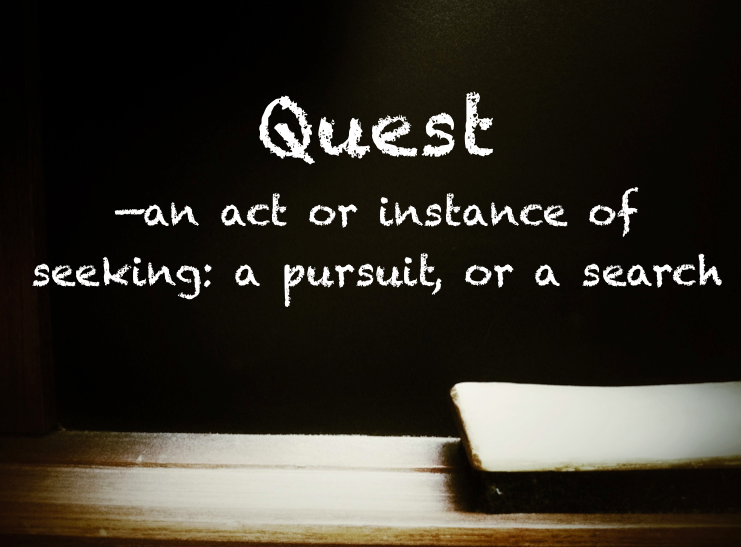The Art of Asking Excellent QuestionsAs many educators understand, authentic learning is highly dependent upon asking our students the right questions at the most appropriate times. As deep and meaningful as questions should be, we cannot negate the importance of surface ‘yes or no’ questions when particular moments in learning call for those spontaneous types of questions. However, in general, questioning should take place on multiple levels with every one of our students if we are going to help them to be their best. I recently came across a podcast on iTunes called, Dean Bokhari’s Meaningful Show. In the first episode of Dean’s show that I listened to, he had a guest on his podcast named Michael Bunhay Stainer. The two of them discussed, The Coaching Habit, a book written by Michael. The main theme of the show was to deconstruct the art of questioning in order to identify how best to ask questions regardless of what type of work it is that we do. Dean made a great point in regards to the way he has always looked at the role of questioning in the work that he does. It was a very simple metaphor, in my opinion, but a powerful one as it made me truly think about how important it is to continue to unlock curiosity and wonder in our students straight across the curriculum. He explained how he likes to think of and see ‘QUEST’ in the word QUESTION and makes the point that all questions should promote and foster a quest of some sort. Most people would associate a quest with some type of adventure, journey, or pilgimmage that allows us to uncover some sort of truth along the way. What a great way to look at the questions that we ask our students. Our ultimate goal, as educators, should be to continue to get our students wanting to find out the answers— to be completely absorbed in the process of determining certain truths, on their own, through the learning experiences we help to design in our classes. Often times the quest to ask great questions forces us into a state of tension as we cannot simply continue to roll out the same activities and lessons year in and year out in our programs. I like to use golf as a nice metaphor to illustrate the point I am trying to make in regards to the art of asking great questions. We can play the same golf course 3 times a week for years on end, but the reality is that every time we play the course, we never experience the course or our games in the same fashion. This is a perfect example for how we need to deliver the learning that takes place every day in the subject areas that we teach. If you were a golf caddy, you’d constantly have to gauge the wind, elevation, temperature, distance, obstacles standing in the way of your golfer and the direction he needs to hit the ball, and the general conditions of the course, such as how wet or dry it is. You would then help your golfer decide upon the best way to attack each shot on the course. But, ultimately it is the golfer that eventually needs to determine what type of shot to hit then proceed to hit that shot based on the information he has been given by the caddy. Questioning and learning are no different! An advanced or professional golfer doesn’t need the caddy to teach him how to hit the actual shot as they will have already mastered the skill of striking a golf ball. However, for average to beginner level golfers, the caddy will often need to step in and instruct on the fundamental basics of the golf swing. Consider this to be more of a direct instructional approach to teaching. Even when using the direct instructional model of teaching, we still need to ask GREAT questions to our students.
Excellent teaching and questioning is a carbon copy of the caddy-golfer relationship that takes place on the course. Both are on a quest for information that can help them move forward in the most successful ways possible. These quests are intertwined in a common purpose with journeys that constantly change, unlock curiosity, wonder and excellence, but most importantly unleash the vast potential that exists within both teacher and student. My advice is to think long and hard about the art of asking great questions and to consider this an important process in teaching and learning— a QUEST that brings out the best in both you and your students. Thanks for reading!
0 Comments
Leave a Reply. |
AuthorKAUST Faculty, Pedagogical Coach. Presenter & Workshop Leader.IB Educator. #RunYourLife podcast host. Archives
September 2022
|
- Welcome
- All Things Teaching and Learning
- The Aligned Leader Blog
- Consulting and Coaching Opportunities
- My TED X Talk
- My Leadership Blog
- Run Your Life Podcast Series
- How PYP PE with Andy Has Helped Others
- Good Teaching is L.I.F.E
- The Sportfolio
- Example Assessment Tasks
- PYP Attitude Posters (printable)
- Publications



 RSS Feed
RSS Feed
